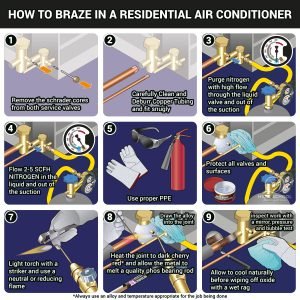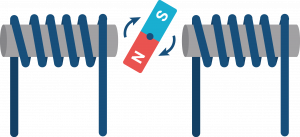Tech Tips

Zeroth? ZEROTH? is that even a word? Apparently so, because… SCIENCE. The zeroth law of thermodynamics establishes the relationship between multiple objects and a common state of balance between them. It is sometimes called the law of thermal equilibrium. Heat always tries to find a state of balance. “Hotter” is a relative term, but an […]
Read more

“Isaac Newton” by paukrus is licensed under CC BY-SA 2.0 Sir Isaac Newton was an English physicist and mathematician born in a small Lincolnshire village called Woolsthorpe in 1642. His father died before he was born, and his mother remarried when Newton was three years old. He stayed with his maternal grandparents thereafter, and his […]
Read more

“Electric Motor energy transformation” by coach_robbo is licensed under CC BY-NC-SA 2.0. Many scientists and philosophers contributed to the discovery of the law of conservation of energy. People have been aware of the concept of energy conservation since ancient Greece. These ancient Greek philosophers, such as Thales of Miletus, believed that all substances on Earth […]
Read more

Two days prior to this article being published, I sent one out about the popular fallacy that nitrogen “absorbs” moisture. That tech tip went out at 7 PM eastern time like usual, and I was sitting on the couch watching something on the Food Network (as usual). At 7:10 PM, I get a call on […]
Read more

When we install systems, we should have three main goals in mind: maximizing longevity, efficiency, and capacity. We want our units to work as long as possible, use the lowest amount of energy, and move the greatest amount of BTUs possible with a proper mix of sensible and latent heat transfer. Unfortunately, some installation practices […]
Read more

In our line of work, it's all too easy to let your bad experiences inform your present and future experiences. That is especially true if you have a high emotional range. Having “emotional range” is a polite way of saying that you're a bit up and down (maybe even neurotic). We don’t believe that sensitivity […]
Read more

Full disclosure: as a technician, I was guilty of setting the fan to “on” at the thermostat for many years. I never really thought of any of the negative impacts that could happen. I wanted to circulate the air and keep air moving through the high-efficiency air filter that most of our houses had. Later, I […]
Read more

Ohm’s law is pretty straightforward; you multiply ohms by amps to get the voltage. Using variable E to represent voltage, variable I for amps, and variable R for ohms, the equation for Ohm’s law looks like this: E = I × R You can figure out the number of amps in a system using basic […]
Read more

The easy answer is 32v. Class dismissed. I’m only joking, of course. Finding the difference between 208 and 240v power supplies may sound quite simple, but there are some pretty sharp fundamental differences. Apart from the obvious differences in overall voltage, 208 and 240v power supplies use the electrical company’s power differently. The motors also […]
Read more







